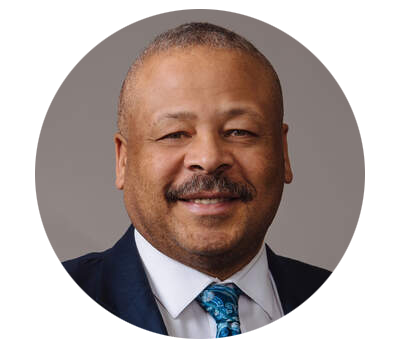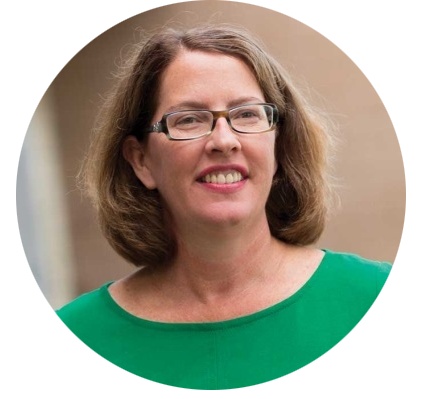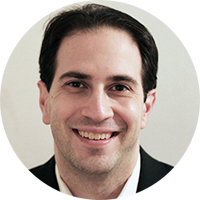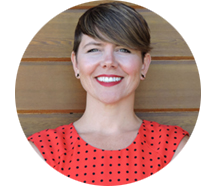Apr 27 2022
From Quick Fixes to Sustainable Change: Creating Education Systems that Embrace Relationships, Complexity and Equity
April 27, 1:00 pm ET
We are at an educational crossroads. After nearly two decades of attempts to standardize schools, education leaders are coming to recognize the limits of Newtonian command and control models of school reform. Stakeholders at all levels are becoming increasingly aware of the need to embrace a more complex, humane and diverse future that can help all children (and adults) to flourish. While the need is apparent, what is less obvious is what policy, practice and leadership would look like in this emerging world. There must be a better way–but what does it look like, how does it work and in what principles is it grounded?
In this briefing, we will report on the efforts of a dozen districts that have been working for three years to answer this question. Known as the Deeper Learning Dozen, this network brings together districts across the United States and Canada to engage in systemic change for equitable, powerful and deep learning. We have learned that doing so requires making a series of shifts: from telling to listening; from bureaucracy to flexibility; from closed system to open systems; from linear planning to complex adaptive systems; from transactional interactions to deep relationship building. There is no new “one best way” to do these things, but there are common principles that are applied in different ways in different contexts. And these principles are situated in a common worldview–one that respects the interests and capabilities of both students and adults, embraces diversity rather than seeking to homogenize it, and is comfortable with complexity and ambiguity rather than trying to eliminate it.
After an overview from Harvard Graduate School of Education professor Jal Mehta, we will see what it looks like in action, with short presentations from Dianne Kelly, superintendent of Revere, Massachusetts, Kevin Godden, superintendent in Abbotsford, British Columbia, and Jason Glass, commissioner of the state of Kentucky and the former superintendent of Jefferson County, Colorado. Plenty of time will be left for your comments and questions.
This event is intended for members and other education grantmakers. There is no cost to attend this program. The session will run for one hour and 30 minutes.
Registration closes 15 minutes prior to the program time. Thank you for your patience; we review each registration in advance.
REGISTER FOR EVENT ❯About the Presenters

Dr. Jason E. Glass
Commissioner of Education
Kentucky Department of Education
Dr. Glass, a native of Brandenburg, Kentucky and a third-generation educator, has been commissioner of education since September 2020. Before that, he was superintendent and chief learner of Jeffco Public Schools in Colorado. Glass began his teaching career at Hazard Independent Schools. He held progressively senior positions with the Colorado Department of Education, then worked for Qualistar Early Learning. He served briefly at Ohio-based Battelle for Kids, then was appointed as Iowa state director of education. Glass served as Iowa’s chief state school officer, then was superintendent of Eagle County Public Schools in Colorado. Glass earned a master’s in political science and a master’s in education from the University of Kentucky. He received his doctorate in education leadership from Seton Hall University. He holds a certificate in advanced education leadership from Harvard University. In 2016, President Barack Obama nominated Glass to the National Board for Education Sciences.

Dr. Kevin Godden
Superintendent of Schools
Abbotsford (BC) School District
Kevin has been the Superintendent of Schools for the Abbotsford School District since July 2011, overseeing some 19,000 students and 2,500 employees. Kevin is committed to student success in all forms and envisions a school district that can nimbly respond to the ever changing needs and interests of its students.
Kevin is committed to team work, working collaboratively with district staff and community partners to make the school district the best it can be. He still considers himself a teacher at heart, and believes, like Nelson Mandela, that the “keenest revelation into the soul of any society is manifested in the manner in which they treat their children.”

Dr. Dianne Kelly
Superintendent
Revere (MA) Public Schools
Dr. Dianne Kelly began her career in the Revere Public Schools in 1995 as a mathematics teacher at RHS. While in the classroom, she also served as President of the Revere Teachers Association and Lead Teacher of the Mathematics Department. Prior to being named Superintendent, Dr. Kelly served in several other administrative positions including Dean of Students at Revere High School; District Director of Mathematics; District Director of Math, Science, and Technology; and Assistant Superintendent. Dr. Kelly has also served on several state education committees including Co-chair of the State of Massachusetts Mathematics Common Core Review Panel, the Massachusetts STEM Operations Board and the K12-Postsecondary Pathways Working Group. She earned her Bachelor’s degree in Applied Mathematics as well as her Doctorate in Urban School Leadership at the University of Massachusetts Boston. She earned her Master’s degree in Mathematics for Educators at Worcester Polytechnic Institute.

Dr. Jal Mehta
Professor
Harvard Graduate School of Education
Jal Mehta is a professor at the Harvard Graduate School of Education. His research explores the role of different forms of knowledge in tackling major social and political problems, particularly problems of human improvement. He has also written extensively on what it would take to improve American education, with a particular focus on the professionalization of teaching. Jal is the author of The Allure of Order: High Hopes, Dashed Expectations and the Troubled Quest to Remake American Schooling (New York: Oxford University Press, 2013) and the co-editor of The Futures of School Reform (Cambridge: Harvard Education Press, 2012). He is currently working on two projects: In Search of Deeper Learning, a contemporary study of schools, systems, and nations that are seeking to produce ambitious instruction; and The Chastened Dream, a history of the effort to link social science with social policy to achieve social progress. He is co-editor of the Learning Deeply blog at Education Week, and in 2014 was the top-ranked junior faculty scholar in the Rick Hess Education Week rankings. He is also the winner of the Morningstar Teaching Award at the Harvard Graduate School of Education.

Dr. Zoë Stemm-Calderon
Director, Education
Raikes Foundation
Zoë joined the Raikes Foundation in 2015 to lead its education strategy. Before joining the foundation, Zoë served as a resident at the Bill & Melinda Gates Foundation while completing her doctorate in education leadership from the Harvard Graduate School of Education. Previously, Zoë was assistant superintendent of professional support and development at Houston Independent School District (ISD). Prior to her work in Houston ISD, Zoë was a senior leader at Teach for America, where she spent her 10-year tenure focused on advancing the organization’s approach to teacher, coach, and manager development. Zoë began her career as an elementary school teacher in Houston. Zoë lives in Seattle with her partner Andre and her two daughters.

